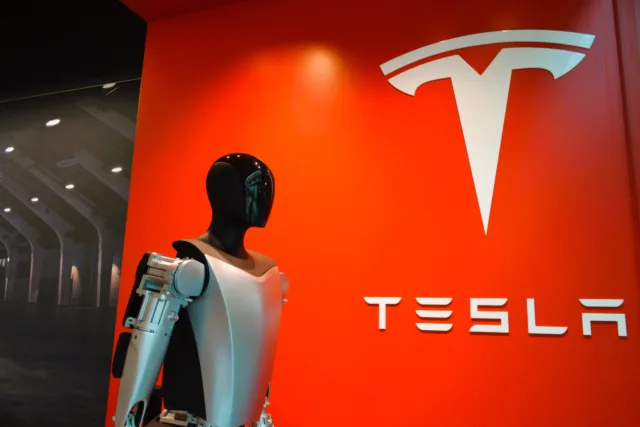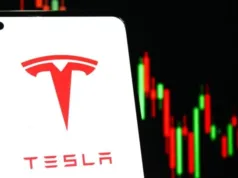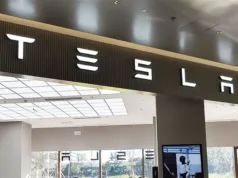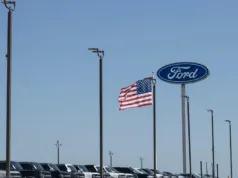TLDR
- Tesla now requires suppliers to avoid China-made components for U.S. vehicles.
- Tariff volatility is pushing auto companies to rework supply chains.
- Tesla’s China-made EV sales fell 9.9% in October.
- Shanghai output for Model 3 and Model Y dropped sharply from September.
- TSLA’s long-term returns remain strong despite a flat YTD performance.
Get live prices, charts, and KO Scores from KnockoutStocks.com, the data-driven platform ranking every stock by quality and breakout potential.
Tesla, Inc. (NASDAQ: TSLA) traded at $404.35 at close and $405.42 after hours, reflecting modest intraday gains.
Tesla, Inc., TSLA
As tariff uncertainty intensifies, Tesla is requiring suppliers to eliminate China-made parts from U.S.-manufactured vehicles, a move detailed in a Wall Street Journal report. The shift arrives as auto executives face ongoing strain from fluctuating U.S.–China trade policies and rising concerns over rare-earth and chip supply reliability.
Tesla is now requiring its suppliers to exclude China-made components in the manufacturing of its cars in the U.S., a fresh example of the fallout from Washington-Beijing tensions https://t.co/vRhvYbvy9k
— WSJ Business News (@WSJbusiness) November 15, 2025
Supply Chain Realignment for U.S. Production
Tesla and its suppliers have already replaced several China-made components, with expectations to transition all remaining parts to non-China sources within one to two years. The goal is to insulate U.S. production from tariff risk and supply chain instability. People familiar with the matter note that Tesla’s push has intensified as policy swings under President Donald Trump have created unpredictable cost structures across the auto sector.
Rising Tariff Exposure and Industry Pressure
Executives across the industry are in near-constant triage mode due to tariff volatility. Recent bouts of panic over rare-earth bottlenecks and semiconductor shortages have forced automakers to revisit dependence on China. General Motors recently told thousands of its suppliers to eliminate China-made components, reflecting a broader industry shift.
Changes in China Market Performance
Recent industry data highlights new challenges for Tesla’s China operations. The China Passenger Car Association reported a 9.9% year-over-year decline in China-made EV sales, with October deliveries falling to 61,497 units. The drop reversed a 2.8% increase recorded in September. Production at Tesla’s Shanghai plant also declined sharply, with Model 3 and Model Y output falling 32.3% from September, including vehicles built for export markets.
Two Years of North American Sourcing Expansion
Tesla has increased its North American sourcing efforts for two years to minimize tariff exposure. The company’s approach aligns with the broader sector trend of reducing reliance on China amid geopolitical risk and supply vulnerabilities.
TSLA Performance Snapshot
Trailing total returns as of November 14, 2025, show mixed performance. TSLA delivered a 0.13% YTD return, lagging the S&P 500’s 14.49%. Its 1-year return of 29.94% outpaced the benchmark, while 3-year and 5-year returns of 111.76% and 196.95% show strong long-term momentum.
Tesla’s restructuring of its supplier ecosystem signals a long-term defensive move as the auto industry adapts to shifting geopolitical and regulatory headwinds.









